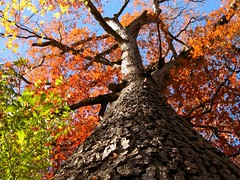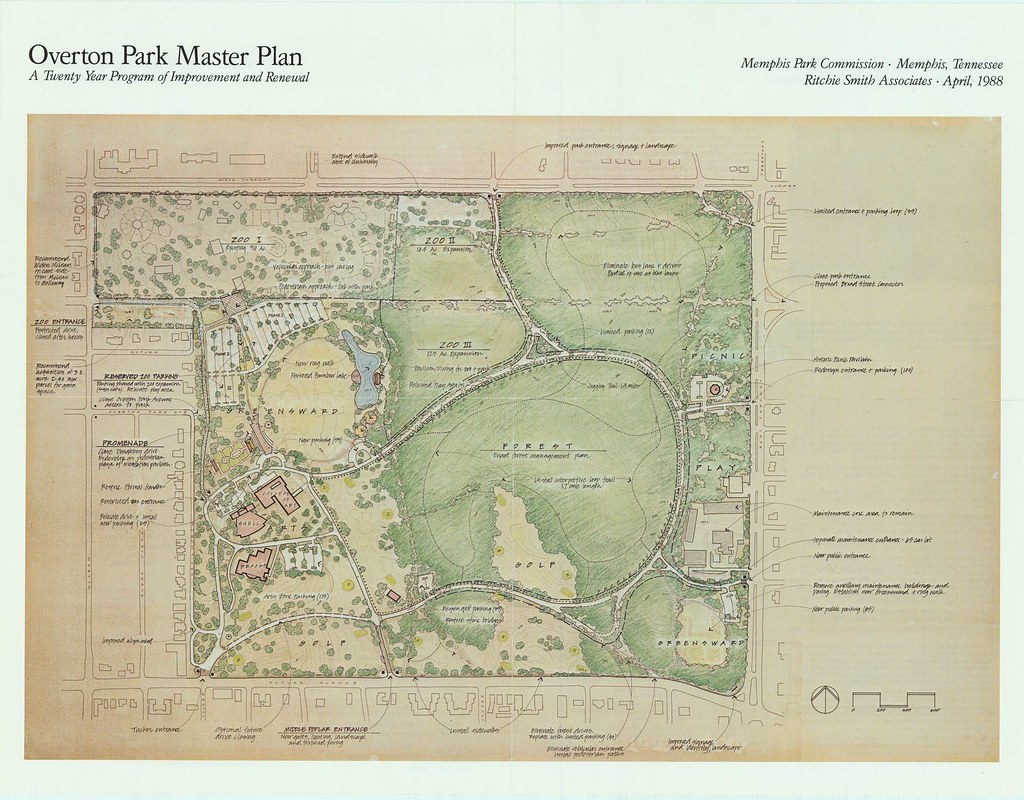The lovely and talented archivists of the Memphis Public Library have assembled a great historical collection of Overton Park postcards. You may click on each of the below images for a closer view, or visit their blog to browse the whole collection.




Let's rebuild this amazing playground/deathtrap! Our kids need more giant slides in their lives.
Wednesday, March 30, 2011
At the Library
Posted by Naomi Van Tol at 9:41 AM 1 comments
Labels: Overton Park, Why We Fight
Wednesday, March 9, 2011
Hug a (landmark) tree
Several years ago, we collaborated with Memphis Park Services and Park Friends Inc. to nominate the Old Forest for the Tennessee Urban Forestry Council "Landmark Trees" registry, and TUFC said yes. It took a little while to make it to their website, but here it is!
Old Forest of Overton Park, Memphis
Nominated by the City of Memphis (Memphis Park Services Division), Park Friends, Inc., and the Citizens to Preserve Overton Park - Added in 2008
A true island of green surrounded by urban sprawl, the Old Forest of Overton Park stands within the city of Memphis and is a testament to the protection and preservation attitudes of a people.
Once part of the old-growth virgin forest that formed Chickasaw Bluffs, "Lea's Woods" was at one time over 342 acres and was named for Overton and Ella Lea of Nashville. Overton Lea was a grandson of John Overton, the founder of Memphis in 1819 with Andrew Jackson and James Winchester. At the time Memphis acquired the tract for the public good in 1901, the Old Forest was 200 acres.
Overton Park was designed by the renowned landscape architect George E. Kessler and was listed on the National Historic Register in 1979. While Overton Park contains the Brooks Museum of Art, the Memphis College of Art, the Memphis Zoo, the Levitt Shell, Veteran's Plaza, the Greensward, two playgrounds and the Overton Park Golf Course, the Old Forest remains an oasis of natural ecosystems. It contains more than 330 plant species, with some of the trees exceeding 200 years of age. Some 160 bird species have been also been found frequenting the forest. Public trails wind through the tract and guided nature walks are provided every month. A network of citizen groups helps the city manage the Old Forest, including Citizens to Preserve Overton Park and Park Friends, Inc.
Overton Park also became nationally significant in 1971 for the U.S. Supreme Court ruling known as the Citizens to Preserve Overton Park v. Volpe, which pitted the Federal Highway Administration, which wanted to build Interstate 40 through the park, against local desires to maintain the natural ecosystem. After they lost two court cases, including in the 6th Circuit Court, the Citizens to Preserve Overton Park filed an emergency motion with the U.S. Supreme Court, and the result became a landmark administrative law case that has been cited in thousands of legal opinions across the nation. It was one of the few times that a non-profit organization won against a federal agency.
Although the Old Forest is now only 150 acres today, it remains a priceless resource for the community and the region.

Thank you, Tennessee Urban Forestry Council!
Posted by Naomi Van Tol at 3:38 PM 0 comments
Labels: Honors, Overton Park
Thursday, March 3, 2011
Forty years ago
On March 2, 1971, the U.S. Supreme Court issued a final decision on Citizens to Preserve Overton Park v. Volpe. This ruling effectively prevented Interstate 40 from bisecting Overton Park and Midtown Memphis. It remains a landmark administrative law case that has been cited in thousands of legal opinions across the nation.
But as important as this ruling was, and is, the protection it gave to Overton Park was limited to federal road projects. There is still no law that protects our city parkland from local bulldozers.
In 1956, the Federal Highway Administration and Memphis officials proposed the construction of Interstate 40 through Overton Park and adjacent neighborhoods in Midtown Memphis. A year later, a small group of Memphians banded together as Citizens to Preserve Overton Park (CPOP) to advocate against the proposed highway.
This citizen advocacy delayed the final approval of the midtown Memphis section of Interstate 40 until April 3, 1968, when the Memphis City Council met secretly with the administrator of the Federal Highway Administration. On April 4, the City Council formally voted to approve the route and road design. (Coincidentally, Dr. Martin Luther King Jr. was assassinated in Memphis just moments after this vote was taken.)
In 1969, the Tennessee Department of Transportation (TDOT) paid the City of Memphis $2 million for 26 acres of Overton Park and designated that land as Interstate 40 right-of-way.
In December of 1969, CPOP filed a local lawsuit to stop the imminent construction of the highway through the park, claiming that the federal government had failed to comply with its own regulations on routing highways through public parkland.
CPOP lost their suit and appealed to the 6th Circuit Court, where they lost again. By this time, December of 1970, the right-of-way for Interstate 40 had been cleared to the borders of Overton Park and construction was proceeding on what is now Sam Cooper Boulevard. Hundreds of homes and businesses had been destroyed.
As the bulldozers approached the east side of Overton Park, CPOP made one last effort and filed an emergency motion with the US. Supreme Court to stop highway construction. This time CPOP won their case.
The 1971 U.S. Supreme Court ruling forced the Federal Highway Administration and local authorities to follow a law -- Section 4(f) of the Department of Transportation Act of 1966 -- which required the study of all “feasible and prudent alternatives” to the use of public parkland for highway construction.
Between 1971 and 1980, the City of Memphis and TDOT continued to propose a number of alternatives for Interstate 40 -- building a two-level tunnel, building a one-level tunnel, building the highway in a deep trench, etc. -- that all followed the same route through Overton Park. None of these alternatives were approved by the Federal Highway Administration.
On January 26, 1981, TDOT finally removed the Midtown Memphis segment of Interstate 40 from the federal interstate highway plan. This decision was influenced by the cost of the proposed alternatives (estimated as high as $300 million) and by the construction of the Interstate 240 loop around Midtown Memphis, which provided a feasible alternative route.
In 1987, the State of Tennessee deeded the 26 acres of Overton Park back to the City of Memphis.
Overton Park remains the beloved centerpiece of the Memphis park system but it's still vulnerable to inappropriate development. It is time for our community to provide lasting legal protection for the entire 342-acre park and to create the 150-acre Old Forest State Natural Area.
We owe it to the courageous people who stood up for our park forty years ago, and we owe it to our kids.
Further info on CPOP v. Volpe:
- Read the U.S. Supreme Court ruling written by Justice Thurgood Marshall
- Listen to the oral arguments before the U.S. Supreme Court
- Read a research paper from Columbia Law School professor Peter L. Strauss
- Read Time Magazine's summary of the case
Posted by Naomi Van Tol at 9:22 AM 4 comments
Labels: Back to the Future, Overton Park, Why We Fight










